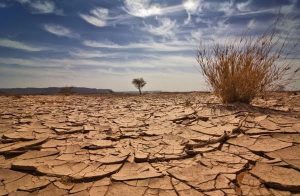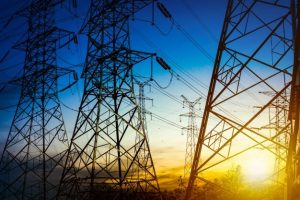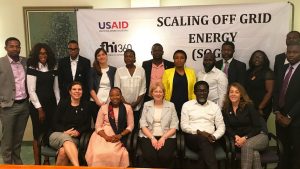By Akachukwu Okafor
Sometimes I wish that Nigeria’s power sector challenges are solved so that I will have less to write on, but this seems not to be happening as issues keep arising in this large and troubled electricity market with its various actors and stakeholders.
After my last publication on the feasibility of the power sector recovery plan, I received several messages from key sector players including from a diplomatic mission commending the article’s insightfulness and asking that I share a copy of the recovery plan if I had it. At the time the last article was published, I did not have the plan and my preliminary analysis was based on the media briefing by the Minister of Power after the approval of the plan. However, I have obtained the plan now and I hope to further analyse the plan based on the specific programmes it hopes to embark on. The feedback I found most interesting was from a former Chairman on the Technical Committee of National Integrated Power Project (NIPP) who was not happy that I did not emphasise how DISCOS, in truth, collect a lot of revenue, but turn around to claim to other market players that they collect little and are operating at a loss. He described DISCOS as the problem of Nigeria’s electricity sector for not remitting revenue and refusing to invest in upgrading their infrastructure.
I promised to be more critical of all players in the sector especially DISCOS as I have always been (and as allowed by word count – it will take not less than a 5,000 word article to analyze how DISCOS are a big problem for Nigeria’s electricity sector). I still do not understand how the government strongly believes that DISCOS operate two accounting books and yet, have not taken appropriate and necessary actions to ensure that they are more transparent and accountable. This lack of transparency and accountability helps in the low revenue base of the power sector which starves it of the finance it critically needs for reforms and recovery programmes. Interestingly, these and other issues including enforcing corporate governance from power sector operators, enforcing market discipline, developing a coherent strategy to resolve militancy and making a definite policy statement on tariff are among sector issues that the World Bank listed as conditions for the release of $1 billion needed to help fund power sector programmes.
Speaking of definite policy statements, according to a World Bank global scorecard for policy makers which compares the national policies and regulatory frameworks for sustainable energy amongst different countries, Regulatory Indicators for Sustainable Energy (RISE), February 2017, Nigeria ranked amongst the worst countries with regard to enabling policy environment for energy access, energy efficiency and renewable energy. Of 111 developing and developed countries studied which represents 96 percent of the world’s population and energy consumption, Nigeria scored very low for the three categories. For energy access, Nigeria ranked 10th worst country ahead of Liberia, Yemen, Mauritania, South Sudan, Sierra Leone, Chad, Haiti, Central African Republic and Somalia in that order. Countries that performed better than Nigeria include – Afghanistan, Congo Republic, Madagascar, Ethiopia, Eritrea, Niger, Togo, Sudan, Honduras, and Mozambique. For energy efficiency, Nigeria was ranked 8th worst ahead of Somalia, Mozambique, Chad, Loa People Democratic Republic, Mali, Mauritania, Congo Republic while Niger, Central African Republic, Liberia, Vanuatu, Solomon Islands, Yemen, Burundi, Myanmar, Maldives, Haiti, Zimbabwe, South Sudan were among 12 countries that performed better than Nigeria. On the renewable energy category, Nigeria was ranked 21st ahead of Somalia, Haiti, Sierra Leone, Eritrea, South Sudan, Niger, Mauritania, Bahrain, Liberia, Congo Rep while Uzbekistan, Mozambique, Benin, Burkina Faso, Saudi Arabia, Kuwait, Cambodia, Congo Democratic Republic, Qatar were listed countries that performed better than Nigeria.
Although Nigeria’s renewable energy score improved by over ten places when compared to energy access and energy efficiency it was still 4 points below the indicator score mark for low performing countries. Nigeria’s performance on this scorecard will not come as a surprise to people with a good understanding of the energy sector in Nigeria. Space will not allow me analyse the report in detail. For instance, on the energy access category, Nigeria’s overall score for energy access was 22 and 0, 0, 17, 35, 22, 100, 0, and 0 for existence of plan, scope of plan, grid electrification, minigrids, stand-alone systems, affordability, utility transparency and monitoring, and utility credit worthiness indicators respectively. The most interesting aspect of these indicators is that consumer affordability of electricity scored 100 which is an indication that electricity consumers can afford to pay the cost of electricity.
This situation seems to be well understood by government and key electricity market players which may be what the Nigerian government is exploiting in its continued push for a cost reflective tariff for the market. However, consumer affordability of electricity is clearly different from willingness to pay for electricity which is one of the challenges that the grid sector is facing. The problem of willingness to pay borders on social issues of distrust with public utilities and citizens’ perception of government’s role in providing utilities which is mostly informed by politicians’ election campaign promises. The scores of the other indicators means that government has a lot to do in making the right policies and setting the right regulatory frameworks for an enabling environment that accelerates sustainable energy access.
On energy efficiency, Nigeria’s overall score was 11 out of 100, and this equally doesn’t come as a surprise especially when policy makers are not knowledgeable about their responsibilities to the sector. For instance, the Senate Committee Chairman on Power, Senator Enyinnaya Abaribe while responding to a question on how energy efficiency in Nigeria can be increased said that it is the job of energy efficiency appliance vendors to educate Nigerians on energy efficiency as it is not the job of government to lead energy efficiency programs, or in extension make enabling policies.
Unfortunately, the Nigerian Electricity Regulatory Commission (NERC) which should be helping policy makers better understand the sector which they are to make policies for and also supervise are not doing enough. A check on the capacity building programmes designed for legislators will reveal that most of the capacity building programmes are not specifically designed for policy makers in Nigeria’s difficult regulatory environment. Most capability building programmes are via sponsorship to international conferences that will add little or no knowledge for making the right country-specific power sector policies. The legislative committees, relevant government ministries and departments and agencies on power also lack experts who should help in crafting the right policies asides other capacity, institutional and bureaucratic challenges that trouble the sector.
“Unfortunately, the Nigerian Electricity Regulatory Commission (NERC) which should be helping policy makers better understand the sector which they are to make policies for and also supervise are not doing enough.”
Renewable energy is performing better than other categories; however, there are a few practices by some project implementing stakeholders especially government energy agencies and projects that are not only unhealthy for the immediate growth of the sector, but which will in the medium term, help destroy the progress being made by other stakeholders. These practices include poor design of projects, wrong costing of projects and lack of transparency in procurement and contract processes which lead the implementation of projects that fail within a short time. This gives a bad name to renewable energy technologies and products. To help promote sustainable energy in Nigeria, government must do what is necessary, not just in formulating enabling policies and regulations for growth but to ensure that these policies are implemented and enforced appropriately in line with best practices. While government and other stakeholders are working towards creating a more enabling sustainable energy policy environment, consumers must realize that they hold the power to wheel the ship of policy in the direction they desire, which can only happen when consumers effectively engage with the policy and regulatory making processes.
Okafor Akachukwu is the Energy and Environment Editor, The Initiative for Policy Research and Analysis (InPRA) and a Science Policy Research Unit (SPRU), University of Sussex trained Energy Policy, Innovation and Sustainability Expert. Email: akachukwu_okafor@yahoo.com





